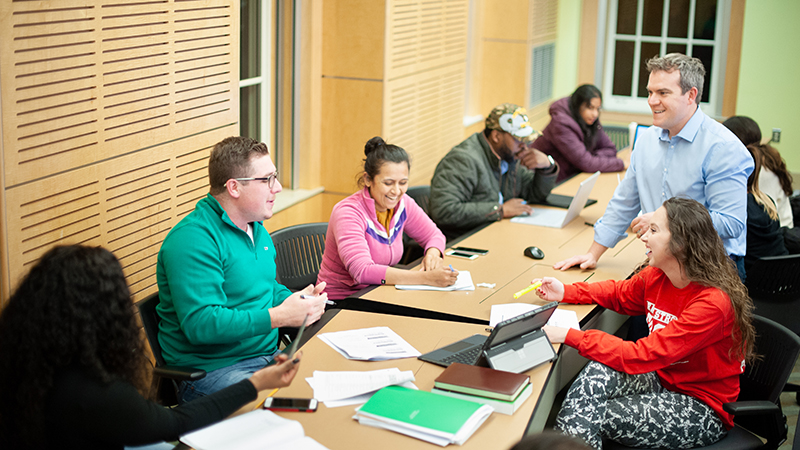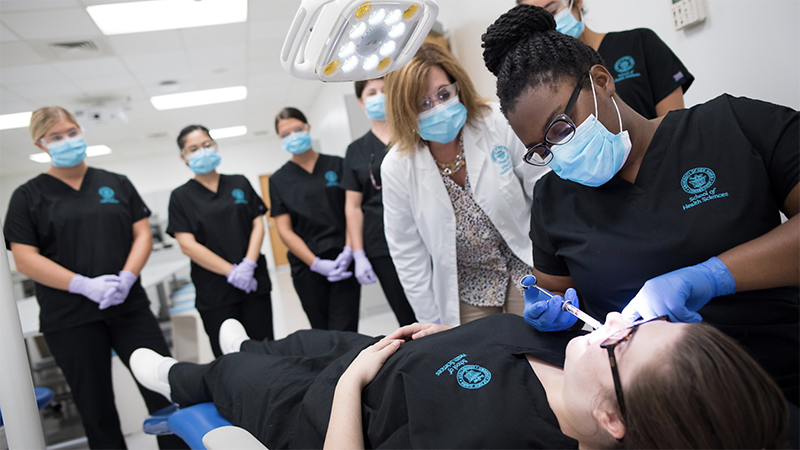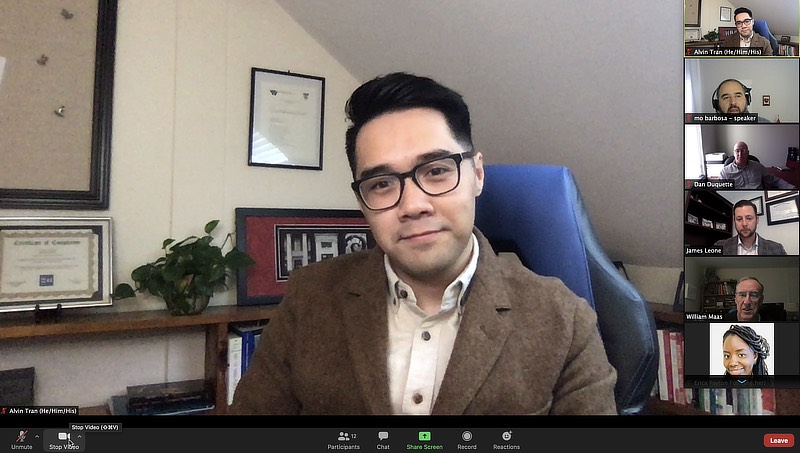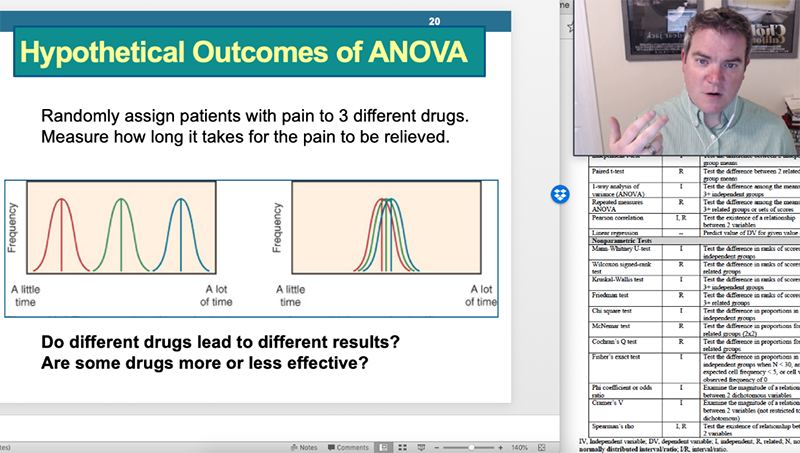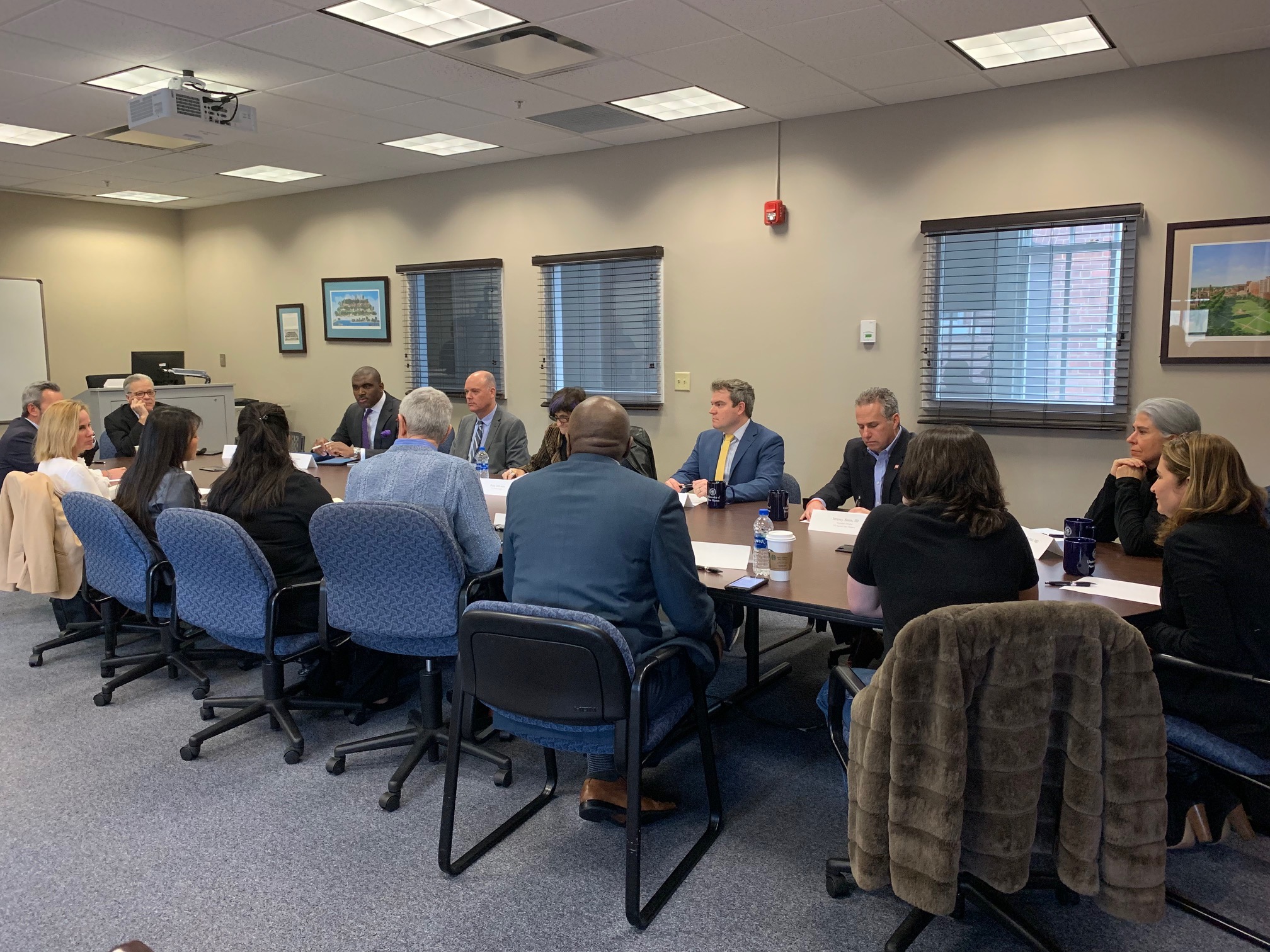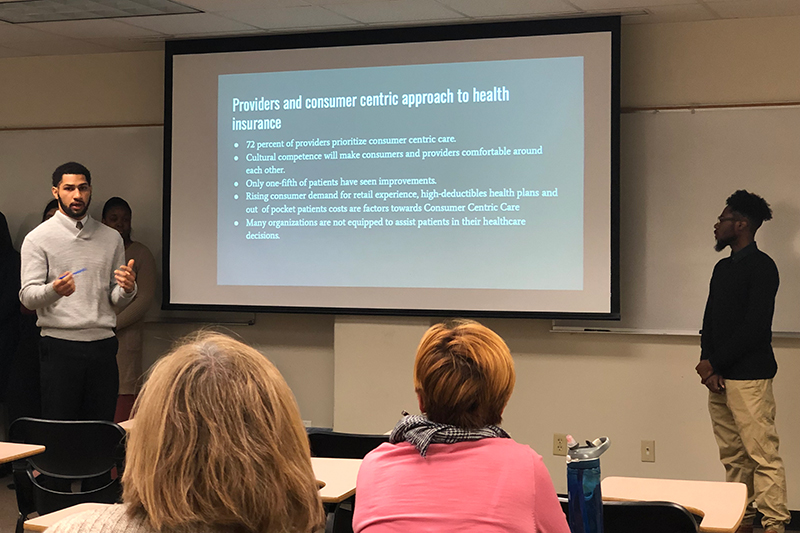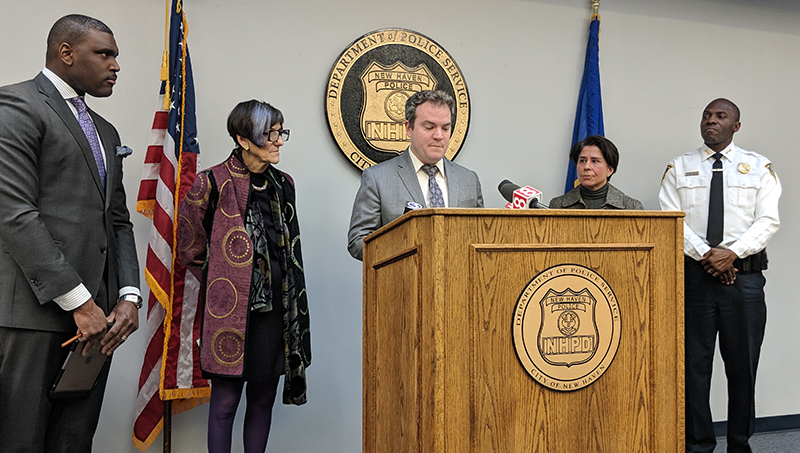Castro-Dominguez, Y. S., Wang, Y., Minges, K. E., McNamara, R. L., Spertus, J. A., Dehmer, G. J., Messenger, J. C., Lavin, K., Anderson, C., Blankinship, K., Mercado, N., Clary, J. M., Osborne, A. D., Curtis, J. P., & Cavender, M. A. (2021). “Predicting In-Hospital Mortality in Patients Undergoing Percutaneous Coronary Intervention”. Journal of the American College of Cardiology, S0735-1097(21)04934-2.
Prutkin, J. M., Wang, Y., Escudero, C. A., Stephenson, E. A., Minges, K. E., Curtis, J. P., & Hsu, J. C. (2021). “Defibrillation Safety Margin Testing in Patients With Congenital Heart Disease: Results From the NCDR”. JACC: Clinical Electrophysiology, S2405-500X(21)00213-9
Annapureddy, A., Henien, S., Wang, Y., Minges, K., Ross, J., Spatz, E., Desai, N., Peterson, P., Masoudi, F., Curtis, J. (2020). "Association Between Industry Payments to Physicians and Device Selection in ICD Implantation." JAMA, 324(17), 1755-1764.
Hyman, M., Bao, H., Curtis, J., Minges, K., Schaller, R., Birgersdotter-Green, U., Marchlinski, F., Hsu, J. (2020). "Comparison of left ventricular lead upgrade vs continued medical care among patients eligible for cardiac resynchronization therapy at the time of defibrillator generator replacement: Predictors of left ventricular lead upgrade and associations with long-term outcomes." Heart Rhythm, 17(11), 1878-1886.
Feldman, D. A., Shroff, A. R., Bao, H., Curtis, J. P., Minges, K., Ardati, A. K. (2020). "Stent selection among patients with chronic kidney disease: Results from the NCDR CathPCI Registry." Catheterization and Cardiovascular Interventions, 29(6), 1213-1221. http://dx.doi.org/10.1002/ccd.28698
Higgins, A., Bjerre, J., Parzynski, C., Minges, K., Ahmad, T., Desai, N., Enriquez, A., Spatz, E., Friedman, D., Curtis, J., Hlatky, M., Freeman, J. (2020). "Comparison of Mortality and Readmission in Non-Ischemic Versus Ischemic Cardiomyopathy After Implantable Cardioverter-Defibrillator Implantation." American Journal of Cardiology (133), 116-125
Saad, M., Tobolski, J., Kolte, D., Wang, Y., Minges, K., Hira, R., Curtis, J., Abbott, J. (2020). "Duration of P2Y12 inhibitor Prescription After Percutaneous Coronary Intervention in Patients on Oral Anticoagulants." American Journal of Cardiology (133), 182-184.
Higgins, A., Annapureddy, A., Wang, Y., Minges, K., Lampert, R., Rosenfeld, L., Jacoby, D., Curtis, J., Miller, E., Freeman, J. (2020). "Survival Following Implantable Cardioverter-Defibrillator Implantation in Patients with Amyloid Cardiomyopathy." Journal of the American Heart Association, 9(18), doi: 10.1161/JAHA.120.016038
Prutkin, J., Wang, Y., Escudero, C., Stephenson, E., Minges, K., Curtis, J., Hsu, J. (2020). "Prevalence, predictors and complications with defibrillation threshold testing in pediatric patients: Results from the NCDR." International Journal of Cardiology (305), 44-49.
Madias, C., Parzynski, C., Burrows, A., Minges, K., Curtis, J., Doukky, R. (2020). "Utilization Effects of the Affordable Care Act on Implantable Cardioverter-Defibrillator Therapy." Journal of the American College of Cardiology, 74(14), 1714-1717.
Minges, K., Campbell Britton, M., Clark, B. W., Ouellet, G. M., Hodshon, B., Chaudhry, S. I. (2019). "Hospital Readmission from Skilled Nursing Facilities (SNFs): Perspectives of Hospital and SNF Providers." Journal of the American Medical Directors Association, 20(8), 1050-1051. http://dx.doi.org/10.1016/j.jamda.2019.03.005
Kawata, H., Bao, H., Curtis, J. P., Minges, K., Mitiku, T., Birgersdotter-Green, U., Feld, G. K., Hsu, J. C. (2019). "Cardiac Resynchronization Defibrillator Therapy for Nonspecific Intraventricular Conduction Delay Versus Right Bundle Branch Block." Journal of the American College of Cardiology, 73(24), 3082-3099. http://dx.doi.org/10.1016/j.jacc.2019.04.025
Desai, N., Udell, J., Wang, Y., Spatz, E., Dharmarajan, K., Ahmad, T., Julien, H., Annapureddy, A., Goyal, A., de Lemos, J., Masoudi, F., Bhatt, D., Minges, K., Krumholz, H., Curtis, J. (2019). "Trends in performance and opportunities for improvement on a composite measure of acute myocardial infarction care: findings from the National Cardiovascular Data Registry." Circulation: Cardiovascular Quality and Outcomes, 12(3), e004983.
Annapureddy, A., Murugiah, K., Minges, K., Chui, P. W., Desai, N., Curtis, J. P. (2018). "Industry Payments to Cardiologists: An Analysis of the Open Payments Program from 2014 to 2016." Circulation: Cardiovascular Quality and Outcomes, 11(12), e005016.
Minges, K., Bikdeli, B., Wang, Y., Attaran, R. R., Krumholz, H. M. (2018). "National and Regional Trends in Deep Vein Thrombosis Hospitalization Rates, Discharge Disposition, and Outcomes for Medicare Beneficiaries." The American journal of medicine, 131(10), 1200-1208.
Baskar, S., Bao, H., Minges, K., Spar, D. S., Czosek, R. J. (2018). "Characteristics and Outcomes of Pediatric Patients Who Undergo Placement of Implantable Cardioverter Defibrillators." Circulation: Arrhythmia and electrophysiology, 11(9), e006542.
Desai, N. R., Bourdillon, P. M., Parzynski, C. S., Brindis, R. G., Spatz, E. S., Masters, C., Minges, K., Peterson, P., Masoudi, F. A., Oetgen, W. J., Buxton, A., Zipes, D. P., Curtis, J. P. (2018). "Association of the US Department of Justice Investigation of Implantable Cardioverter-Defibrillators and Devices Not Meeting the Medicare National Coverage Determination, 2007-2015." JAMA, 320(1), 63-71.
Rosenberg, A., Campbell Britton, M., Feder, S., Minges, K., Hodshon, B., Chaudhry, S. I., Jenq, G. Y., Emerson, B. L. (2018). "A taxonomy and cultural analysis of intra-hospital patient transfers." Research in Nursing & Health.
Goldsweig, A. M., Wang, Y., Forrest, J. K., Cleman, M. W., Minges, K., Mangi, A. A., Aronow, H. D., Krumholz, H. M., Curtis, J. P. (2018). "Ventricular septal rupture complicating acute myocardial infarction: Incidence, treatment, and outcomes among Medicare beneficiaries 1999-2014." Catheterization and Cardiovascular Interventions.
Gawel, M., Emerson, B., Giuliano, Jr, J. S., Rosenberg, A., Minges, K., Feder, S., Violano, P., Morrell, P., Petersen, J., Christison-Lagay, E., Auerbach, M. (2018). "A Qualitative Study of Multidisciplinary Providers' Experiences with the Transfer Process for Injured Children and Ideas for Improvement." Pediatric Emergency Care, 34(2), 125-131.
Badri, M., Shapiro, T., Wang, Y., Minges, K., Curtis, J. P., Gray, W. A. (2018). "Adoption of the transradial approach for percutaneous coronary intervention and rates of vascular complications following transfemoral procedures: Insights from NCDR." Catheterization and Cardiovascular Interventions.
Britton, M. C., Ouellet, G. M., Minges, K., Gawel, M., Hodshon, B., Chaudhry, S. I. (2017). "Care Transitions Between Hospitals and Skilled Nursing Facilities: Perspectives of Sending and Receiving Providers." Joint Commission Journal on Quality and Patient Safety, 43(11), 565-572.
Clark, B., Baron, K., Tynan-McKiernan, K., Britton, M., Minges, K., Chaudhry, S. (2017). "Perspectives of Clinicians at Skilled Nursing Facilities on 30-Day Hospital Readmissions: A Qualitative Study." Journal of Hospital Medicine, 12(8), 632-638.
Minges, K., Herrin, J., Fiorilli, P. N., Curtis, J. P. (2017). "Development and validation of a simple risk score to predict 30-day readmission after percutaneous coronary intervention in a cohort of Medicare patients." Catheterization and Cardiovascular Interventions, 89(6), 955-963.
Minges, K., Whittemore, R., Weinzimer, S. A., Irwin, M. L., Redeker, N. S., Grey, M. (2017). "Correlates of overweight and obesity in 5529 adolescents with type 1 diabetes: The T1D Exchange Clinic Registry." Diabetes Research and Clinical Practice, 126, 68-78.
Stetson, B., Minges, K., Richardson, C. R. (2017). "New directions for diabetes prevention and management in behavioral medicine." Journal of Behavioral Medicine, 40(1), 127-144.
Goldstein, C. M., Minges, K., Schoffman, D. E., Cases, M. G. (2017). "Preparing tomorrow's behavioral medicine scientists and practitioners: a survey of future directions for education and training." Journal of Behavioral Medicine, 40(1), 214-226.
Minges, K., Strait, K. M., Owen, N., Dunstan, D. W., Camhi, S. M., Lichtman, J., Geda, M., Dreyer, R. P., Bueno, H., Beltrame, J. F., Curtis, J. P., Krumholz, H. M. (2017). "Gender differences in physical activity following acute myocardial infarction in adults: A prospective, observational study." European Journal of Preventive Cardiology, 24(2), 192-203.
Whittemore, R., Liberti, L. S., Jeon, S., Chao, A., Minges, K., Murphy, K., Grey, M. (2016). "Efficacy and implementation of an Internet psychoeducational program for teens with type 1 diabetes." Pediatric Diabetes, 17(8), 567-575.
Minges, K., Whittemore, R., Chao, A. M., Jefferson, V., Murphy, K. M., Grey, M. (2016). "Clinical, Psychosocial, and Demographic Factors Are Associated With Overweight and Obesity in Early Adolescent Girls With Type 1 Diabetes." The Diabetes Educator, 42(5), 538-48.
Minges, K., Redeker, N. S. (2016). "Delayed school start times and adolescent sleep: A systematic review of the experimental evidence." Sleep Medicine Reviews, 28, 86-95.
Bikdeli, B., Wang, Y., Minges, K., Desai, N. R., Kim, N., Desai, M. M., Spertus, J. A., Masoudi, F. A., Nallamothu, B. K., Goldhaber, S. Z., Krumholz, H. M. (2016). "Vena Caval Filter Utilization and Outcomes in Pulmonary Embolism: Medicare Hospitalizations From 1999 to 2010." Journal of the American College of Cardiology, 67(9), 1027-35.
Chao, A. M., Minges, K., Park, C., Dumser, S., Murphy, K. M., Grey, M., Whittemore, R. (2016). "General Life and Diabetes-Related Stressors in Early Adolescents With Type 1 Diabetes." Journal of Pediatric Healthcare, 30(2), 133-42.
Minges, K., Chao, A. M., Irwin, M. L., Owen, N., Park, C., Whittemore, R., Salmon, J. (2016). "Classroom Standing Desks and Sedentary Behavior: A Systematic Review." Pediatrics, 137(2), e20153087.
Desai, N. R., Parzynski, C. S., Krumholz, H. M., Minges, K., Messenger, J. C., Nallamothu, B. K., Curtis, J. P. (2015). "Patterns of Institutional Review of Percutaneous Coronary Intervention Appropriateness and the Effect on Quality of Care and Clinical Outcomes." JAMA Internal Medicine, 175(12), 1988-90.
Fiorilli, P. N., Minges, K., Herrin, J., Messenger, J. C., Ting, H. H., Nallamothu, B. K., Lipner, R. S., Hess, B. J., Holmboe, E. S., Brennan, J. J., Curtis, J. P. (2015). "Association of Physician Certification in Interventional Cardiology With In-Hospital Outcomes of Percutaneous Coronary Intervention." Circulation, 132(19), 1816-24.
Minges, K., Bikdeli, B., Wang, Y., Kim, N., Curtis, J. P., Desai, M. M., Krumholz, H. M. (2015). "National Trends in Pulmonary Embolism Hospitalization Rates and Outcomes for Adults Aged ≥65 Years in the United States (1999 to 2010)." The American Journal of Cardiology, 116(9), 1436-42.
Minges, K., Owen, N., Salmon, J., Chao, A., Dunstan, D. W., Whittemore, R. (2015). "Reducing youth screen time: qualitative metasynthesis of findings on barriers and facilitators." Health Psychology, 34(4), 381-97.
Minges, K., Chao, A., Nam, S., Grey, M., Whittemore, R. (2015). "Weight status, gender, and race/ethnicity: are there differences in meeting recommended health behavior guidelines for adolescents?" The Journal of School Nursing, 31(2), 135-45.
Whittemore, R., Chao, A., Jang, M., Minges, K., Park, C. (2014). "Methods for knowledge synthesis: an overview." Heart & Lung, 43(5), 453-61.
Lipska, K. J., Ross, J. S., Wang, Y., Inzucchi, S. E., Minges, K., Karter, A. J., Huang, E. S., Desai, M. M., Gill, T. M., Krumholz, H. M. (2014). "National trends in US hospital admissions for hyperglycemia and hypoglycemia among Medicare beneficiaries, 1999 to 2011." JAMA Internal Medicine, 174(7), 1116-24.
Chao, A., Whittemore, R., Minges, K., Murphy, K. M., Grey, M. (2014). "Self-management in early adolescence and differences by age at diagnosis and duration of type 1 diabetes." The Diabetes Educator, 40(2), 167-77.
Minges, K., Magliano, D. J., Owen, N., Daly, R. M., Salmon, J., Shaw, J. E., Zimmet, P. Z., Dunstan, D. W. (2013). "Associations of strength training with impaired glucose metabolism: the AusDiab Study." Medicine and Science in Sports and Exercise, 45(2), 299-303.
Minges, K., Whittemore, R., Grey, M. (2013). "Overweight and obesity in youth with type 1 diabetes." Annual Review of Nursing Research, 31, 47-69.
Minges, K., Zimmet, P., Magliano, D. J., Dunstan, D. W., Brown, A., Shaw, J. E. (2011). "Diabetes prevalence and determinants in Indigenous Australian populations: A systematic review." Diabetes Research and Clinical Practice, 93(2), 139-49.
Minges, K., Cormick, G., Unglik, E., Dunstan, D. W. (2011). "Evaluation of a resistance training program for adults with or at risk of developing diabetes: an effectiveness study in a community setting." The International Journal of Behavioral Nutrition and Physical Activity, 8, 50.
Courses Taught
-
HCAD 6606 Statistics in Healthcare Administration
-
HLTH 3380 Cultural Competence in Healthcare
-
PUBH 6600 Foundations of Public Health
-
PUBH 6625 Biostatistical Applications in Public Health
-
PUBH 6690 Public Health Capstone

